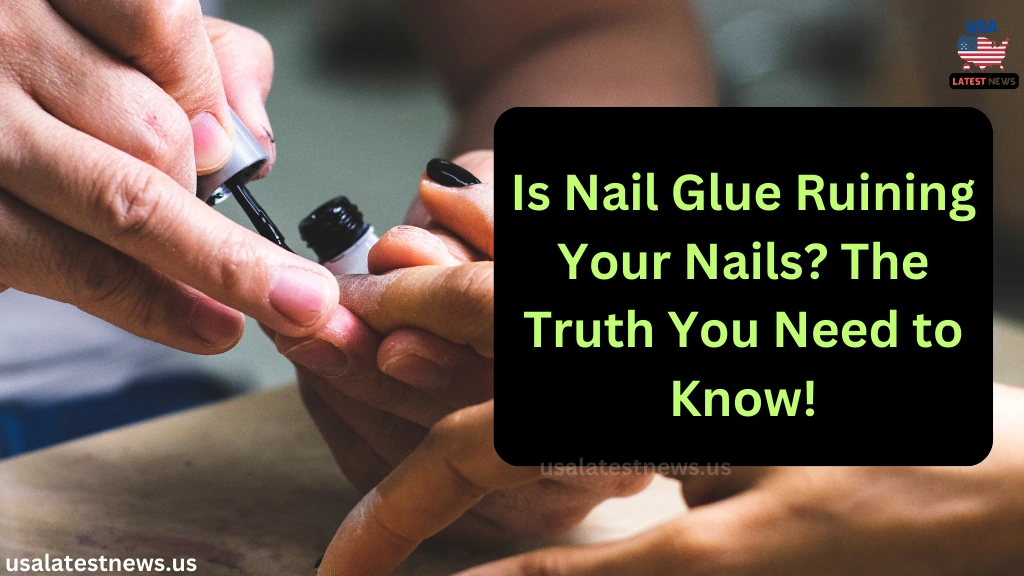When it comes to keeping those nails looking fabulous, nail glue is a handy tool. But is it good for your nails or harmful in the long run? Whether you’re using it for fake nails, repairs, or to add some bling, it’s crucial to understand how nail glue works, its potential risks, and how to use it safely.
This article will dive into everything you need to know about nail glue, from its effectiveness on various surfaces to the potential side effects. Plus, we’ll answer some frequently asked questions to clear up any confusion!
What Is Nail Glue?
Nail glue, also called fingernail adhesive, is a special type of adhesive designed for bonding artificial nails, rhinestones, and other nail accessories. It’s generally more flexible and less harsh than super glue, making it ideal for nail applications. Nail glue is formulated to be strong enough to keep your nails intact but gentle enough not to cause excessive damage to your natural nails when used properly.
Is Nail Glue Stronger Than Super Glue?
Many people wonder: Is nail glue stronger than super glue? The short answer is no. While both adhesives are powerful, super glue (cyanoacrylate) is typically much stronger and faster-drying than nail glue. Nail glue is specifically designed to work with the porous and delicate surface of nails, providing a balance between strong adhesion and flexibility. Super glue, while stronger, may cause more damage to your nails or surrounding skin because it’s less flexible and can be difficult to remove.
Does Nail Glue Work on Plastic?
Yes! Nail glue can indeed be used on plastic surfaces. It’s commonly used for repairs on plastic items like jewelry or accessories. However, when using nail glue on plastic, make sure the surface is clean and dry to achieve the best bond. While it may not be as durable as industrial-grade adhesives, it will work for light, everyday repairs.
Is Nail Glue Bad for Your Nails?
If used properly, nail glue itself isn’t necessarily bad for your nails, but overuse or improper removal can lead to damage. Nail glue can cause your nails to become brittle and dry, especially if it’s applied or removed too aggressively. Additionally, leaving fake nails on for an extended period without allowing your natural nails to breathe can lead to thinning or weakening of the nail plate. To minimize the risks, it’s important to follow the instructions and avoid prolonged use.
Side Effects of Nail Glue
While nail glue is generally safe for use when applied correctly, there are some potential side effects to be aware of:
- Allergic Reactions: Some individuals may have an allergic reaction to the ingredients in nail glue, causing redness, swelling, or irritation around the nail or skin.
- Skin Irritation: If the glue gets onto the skin, it can cause irritation or even chemical burns in extreme cases.
- Nail Damage: If you pull off fake nails or remove nail glue improperly, you can damage your natural nails. This can lead to peeling, brittleness, and even nail infections if not done carefully.
- Inhalation Risks: Nail glue contains chemicals like formaldehyde, which can be harmful if inhaled in large quantities, so it’s best to use it in a well-ventilated area.
How to Safely Use Nail Glue
To minimize the risk of side effects and ensure safe application, follow these tips:
- Patch Test: Before using nail glue, perform a patch test on your skin to ensure you’re not allergic.
- Avoid Skin Contact: Be careful to only apply nail glue to the nails and avoid getting it on the skin.
- Don’t Rush: Apply the glue in small amounts to avoid excess that could spill over onto the skin.
- Proper Removal: When removing fake nails, use a nail glue remover or acetone rather than pulling them off forcefully. This will help prevent damaging your natural nails.
- Moisturize: After using nail glue, apply a good nail oil or hand cream to keep your nails hydrated and strong.
FAQs About Nail Glue
1. Is Nail Glue Good or Bad for Your Nails?
Nail glue can be safe if used correctly, but prolonged or improper use can lead to nail damage. It’s essential to follow the right application techniques and allow your nails to rest between applications to maintain healthy nails.
2. Can Nail Glue Cause Nail Damage?
Yes, nail glue can cause damage if removed incorrectly or used for extended periods. Prolonged use of fake nails, for example, can cause your natural nails to become weak or brittle. Always ensure to remove fake nails carefully and give your natural nails a break.
3. Can I Use Nail Glue on Plastic?
Yes, nail glue works on plastic, and it can be a great option for small repairs or adding decorations to plastic objects. Just make sure the surface is clean and dry for the best bond.
4. Is Nail Glue Stronger Than Super Glue?
No, super glue is typically stronger and more permanent than nail glue. However, nail glue is specifically designed for nails and is more flexible, making it better suited for the delicate nail surface.
5. Are There Any Side Effects to Nail Glue?
While rare, side effects of nail glue can include allergic reactions, skin irritation, and nail damage if used improperly. Always use it in moderation and take care when applying or removing it.
6. How Do I Remove Nail Glue Safely?
To remove nail glue, use a gentle acetone-based remover or soak your nails in warm, soapy water before gently peeling off any stuck glue. Avoid pulling the glue off as it could damage your nails.
